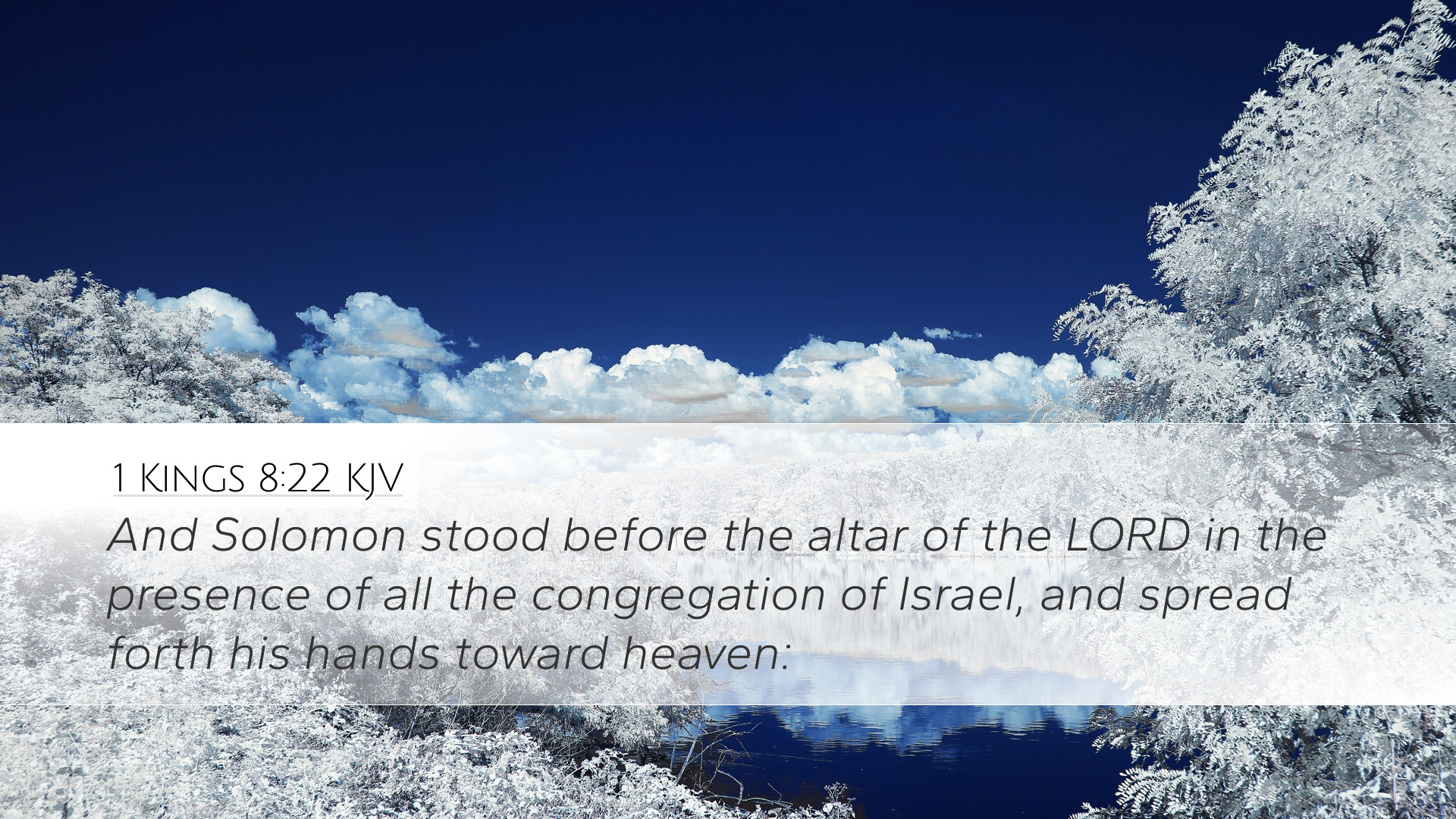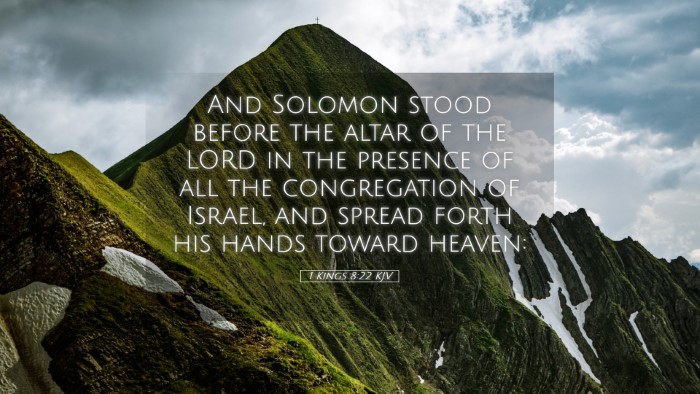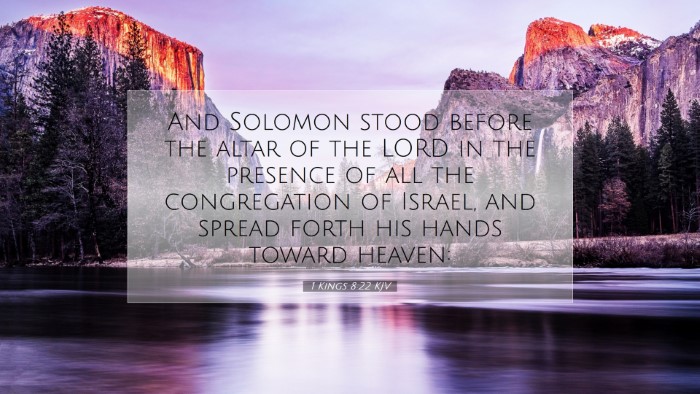Commentary on 1 Kings 8:22
Bible Verse: "Then Solomon stood before the altar of the Lord in the presence of all the assembly of Israel, and spread out his hands toward heaven."
Introduction
This momentous scene in 1 Kings 8:22 marks a pivotal point in Israel's history, highlighting Solomon's dedication of the Temple and his prayer for the people of God. As various commentaries examine this verse, we gain deeper insights into the significance of Solomon's actions and the implications for worship and prayer within the community.
The Theological Significance of Solomon's Position
Solomon's act of standing before the altar signifies his role as the mediator between God and the people—a role not unlike that of Christ Himself, who stands interceding for humanity. Commentary from Matthew Henry emphasizes that Solomon’s posture of spreading out his hands symbolizes openness and surrender, showing that he approaches God in humility and dependence.
The Assembly of Israel
The verse notes that Solomon was in the presence of all the assembly of Israel. Albert Barnes remarks that this collective gathering underscores the communal aspect of worship and prayer. The worship of God is not merely an individual act but is enriched through the unity of God's people. They were all witnesses to this significant hour, signifying that the covenant relationship with God is communal, as well as personal.
Spreading Hands Toward Heaven
The act of spreading out one’s hands toward heaven is richly symbolic. Adam Clarke notes that such a gesture is common in prayer and shows both supplication and reverence. It is an admission that Solomon, and indeed all of Israel, rely on divine favor. This act invites God's presence into their midst, a powerful reminder that worship requires both an outward expression and a sincere heart posture.
Historical Context
- Temple Dedication: This verse falls within the larger context of the dedication of the Temple, a physical representation of God's presence among His people. Solomon's actions reflect Israel's shift towards a centralized form of worship.
- Covenant Relationship: The gathering represents Israel's commitment to their covenant with God, which was established with their forefathers and reaffirmed through Solomon’s reign.
Solomon as a Model for Leadership
Solomon’s leadership is characterized by a strong orientation towards God. In his prayer, which follows this act, Solomon appeals for guidance and mercy, setting a precedent for future leaders in Israel and beyond. Matthew Henry elaborates that the king’s dependence on God serves as an essential lesson in humility for all those in leadership positions; it is a reminder that true authority is derived from divine wisdom.
Application for the Modern Reader
The implications of Solomon's prayer extend beyond his time. The act of standing before God in prayer remains relevant for today’s believers. Albert Barnes proposes that the way Solomon approached God teaches modern believers about the importance of coming into God's presence with a heart full of supplication, praise, and acknowledgment of His sovereignty.
Prayer and Worship Practices
- Physical Posture: While contemporary worship often downplays physical expressions, Solomon's gesture of open hands serves as an invitation for believers to engage physically as well as spiritually in their worship practices.
- Community Worship: The involvement of both the king and the people in worship highlights the importance of corporate prayer and communal participation, encouraging pastors to emphasize collective gatherings.
Conclusion
The actions of Solomon in 1 Kings 8:22 represent a deep theological truth about the nature of prayer and the worship of God within the Israelite context. By studying this verse through the lens of various public domain commentaries, we see a significant model of leadership, humility, and communal devotion that continues to resonate in the lives of believers today. The physical act of praying with spread arms embodies a heart that longs for God, intertwining the need for divine intervention with the recognition of God's sovereign power.


